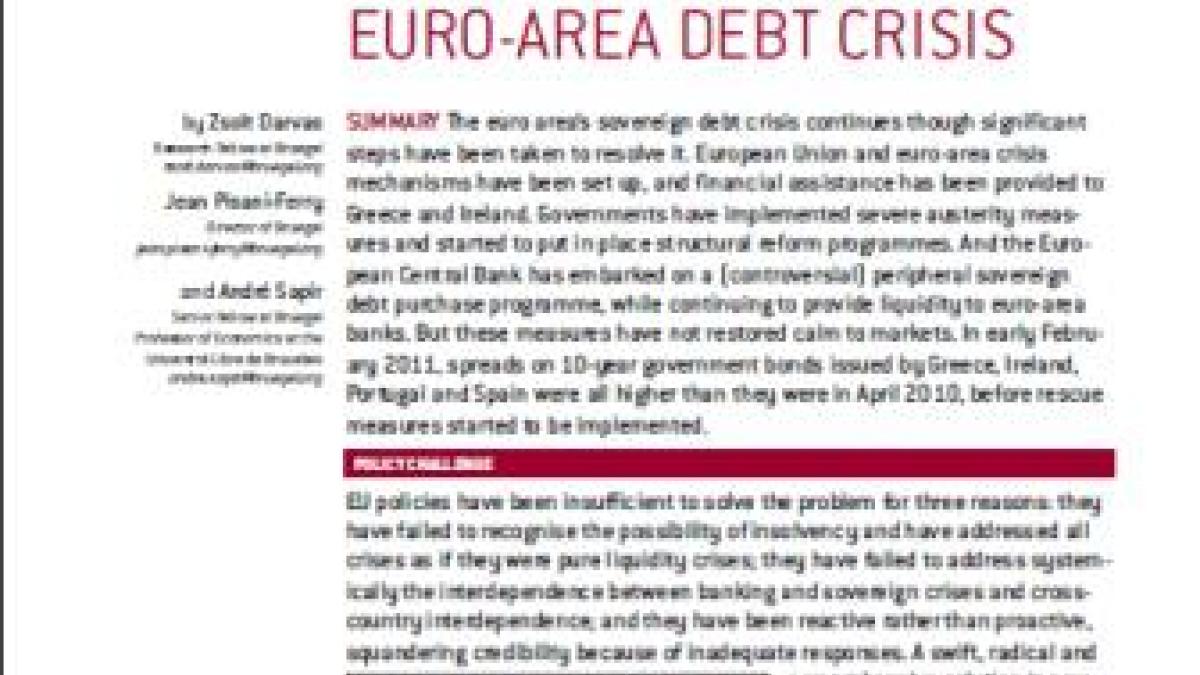A comprehensive approach to the euro-area debt crisis
Zsolt Darvas, André Sapir and Jean Pisani-Ferry propose a comprehensive solution to the current European crisis based on three pillars.

In this Policy Brief Zsolt Darvas, André Sapir and Jean Pisani-Ferry propose a comprehensive solution to the current European crisis based on three pillars: a plan to restore banking sector soundness, a resolution of sovereign debt crisis including a reduction of the Greek public debt and a strategy to foster growth and competitiveness. The paper provides novel estimates and analysis focusing on the current situation of Greece, Ireland, Portugal and Spain.
Bruegel produced a video of the authors Jean Pisani-Ferry, André Sapir and Zsolt Darvas commenting on the "A comprehensive approach to the euro area debt crisis".
Watch the video



